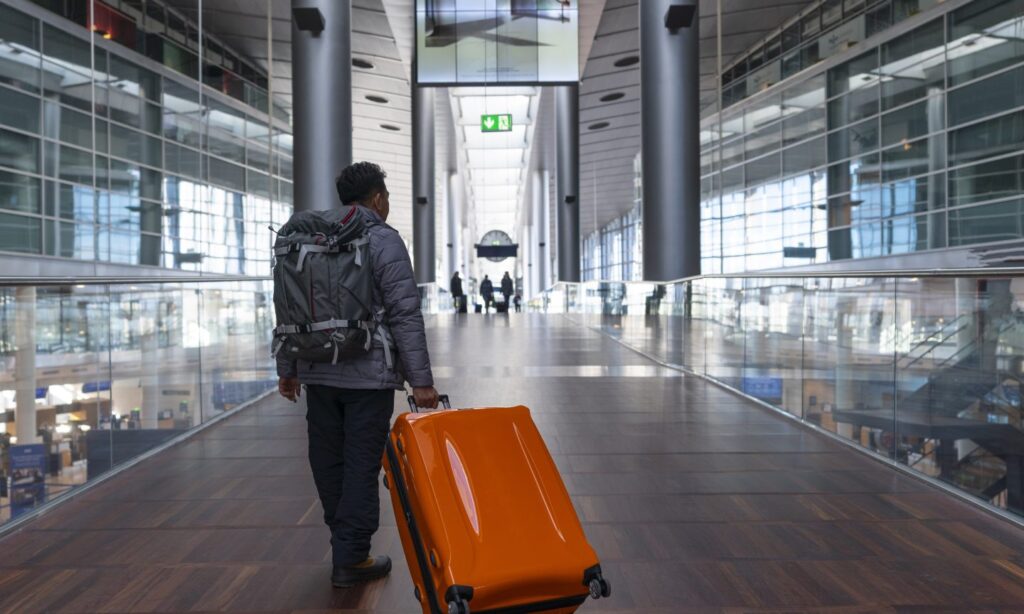At first it was Uber.Then it was wendy's hamburger (Except that the fast food chain clarified that it's technically dynamic pricing, not surge pricing). But now the real deal – skyrocketing prices – is targeting checked baggage.
JetBlue quietly (secretly?) Introduction of “peak” and “off-peak” charges Checked baggage fees were revised on March 22nd. This fact was revealed to the world because my editor happened to be checking the JetBlue website. That means if you fly on JetBlue during busy travel times, such as the summer, most of the winter, or a random few weeks in the spring, you could end up paying $5 to $10 more each way for a checked bag. Masu.
This is a classic example of surge pricing. It is a type of dynamic pricing in which a company only increases prices during periods of high demand and does not lower prices during periods of low demand.
Technically, these new dynamic baggage fees won't affect all customers like other airlines' blanket fee increases. alaska and delta, recently added. But they also mean additional complexity and confusion for customers trying to find out which airline offers the cheapest total price for a particular route.
Dynamic pricing is nothing new in the travel industry. In fact, it's only natural that prices for everything from airfare to hotel rooms to rental cars rise and fall based on the balance between supply and demand.
And airlines have become dependent on these surcharges for revenue. Airlines earned a record $117.9 billion in ancillary fees worldwide in 2023, according to airline consulting firm IdeaWorks Company and car rental technology platform Cartroller. About $33.3 billion of that amount was for baggage fees.
Some industry experts say the transition to more fluid fee pricing will take a long time.
“Airlines have had the ability to set fares based on demand for years. Why not do other fares as well?” said Jay Sorensen, president of IdeaWorksCompany. Masu.
Sorenson points out that many airlines have been dynamically adjusting seat reservation prices for years. If you choose a window seat near the front of the plane on a particular flight, it may be more expensive in December than in February due to increased demand.
But airlines seem so focused on whether they can make more money with increasingly complex fare structures that they don't stop to think about whether they should.
What makes the fare fair?
It all depends on how we think travel companies should price their products. Sorenson believes the company holds airlines to standards that other retailers don't.
“Buying a seat on a plane is like shopping at a grocery store,” he says. “It would be ridiculous if a grocery store required you to tell them upfront how much you were going to spend.”
The base fare is like a shopping cart with other add-ons such as seat selection, premium seat upgrades, and baggage. Just as it is the consumer's responsibility to compare prices at different grocery stores, it is the consumer's responsibility to compare prices at different airlines.
Sorenson said if JetBlue wants to charge extra for eggs (baggage) near the holiday season, you can decide whether to pay the premium or shop with an airline that doesn't.
However, I would counter by saying that charging extra for checked baggage on peak days is similar to charging extra for a carton of eggs. This feels more like an afterthought “gotcha” fee meant to steal the show from most consumers than a meaningful price for a meaningful product.
No matter what you think about dynamic travel pricing, it's clear that it will become more common, not less, in the coming years. What can you do?
Tips for navigating dynamic pricing
It's not reasonable to keep track of which travel companies are charging which fees at any given time. I can barely do that and that's all I do.
Instead, it's worth figuring out which airlines tend to charge higher prices overall and, frankly, avoiding those brands if you want add-ons.
For example, Frontier Airlines' base surcharge is $157 one-way, while Southwest Airlines' charge is $0. Latest NerdWallet analysis.
So the easiest tip is to fly Southwest Airlines. Because the fees are so low, there is no dynamic price for the fees. Checked baggage is free of charge up to 2 pieces per person.
If that's not possible, consider getting a partner airline credit card. Many of them have benefits such as: free checked baggage. Baggage fees are becoming increasingly complex, so using this type of credit card can help you avoid the headaches of dealing with baggage fees, just as paying for Spotify Premium can help you avoid bad ads. You no longer need to
Finally, if possible, skip seat reservation fees. These fees are sneaky and difficult to compare across airlines, but they are optional in most cases. And, as Sorensen points out, they are essentially charging airlines for something that costs them nothing.
“If something is pure margin, my advice to airlines is, 'Don't be too greedy,'” he says.
How to maximize your rewards
You need a travel credit card that prioritizes the things that are important to you. Here we have chosen Best Travel Credit Cards of 2024the best ones are included below.


